
- This event has passed.
RICAIP Seminar Series: Open in Science
November 2, 2021 @ 09:00 – 12:00 UTC+1

November 2, 2021 @ 09:00 – 12:00 UTC+1
We would like to invite you to the next RICAIP Seminar Series, this time on a variety of topics related to Open Science.
Open science, or rather “Open in science” – a concept that each of us has probably heard of at least once in our lives. However, often even scientists are unable to define exactly what characterizes this concept. Thanks to the latest RICAIP Seminar Series, you can get acquainted with the opinions of the most professional experts who will help you find your way around. What exactly does Open Science mean? How can a scientist be open in science? Can I get involved in research as a citizen?
Do not miss an opportunity to discuss with interesting speakers from leading European research institutions that are familiar not only with the aspects of Open Science and Open Access, but also with Citizen Science, Public Engagement, and Co-creation projects.
Online Event
Register, join the lecture online, try interactive engagement, and find out more.
Please find the list of very interesting speakers in the programme and also on the CEITEC website.
9:00 – 9:15
prof. Pavel Václavek
RICAIP Project Coordinator, CEITEC BUT
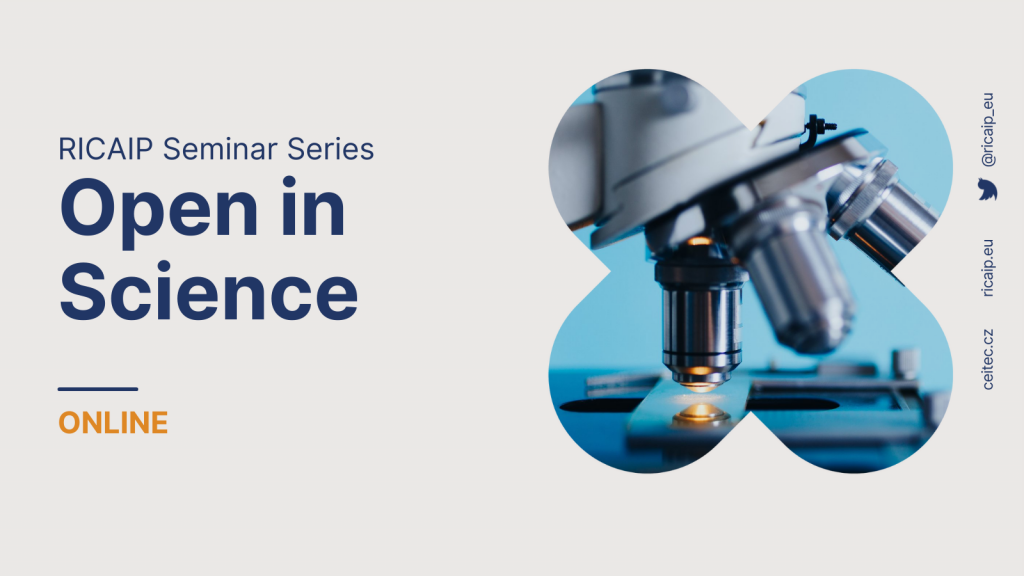
How do we understand the term “open science” in the context of the RICAIP Project?
9:15 – 10:00
Dr Pavel Tomančák
Director of the CEITEC Consortium
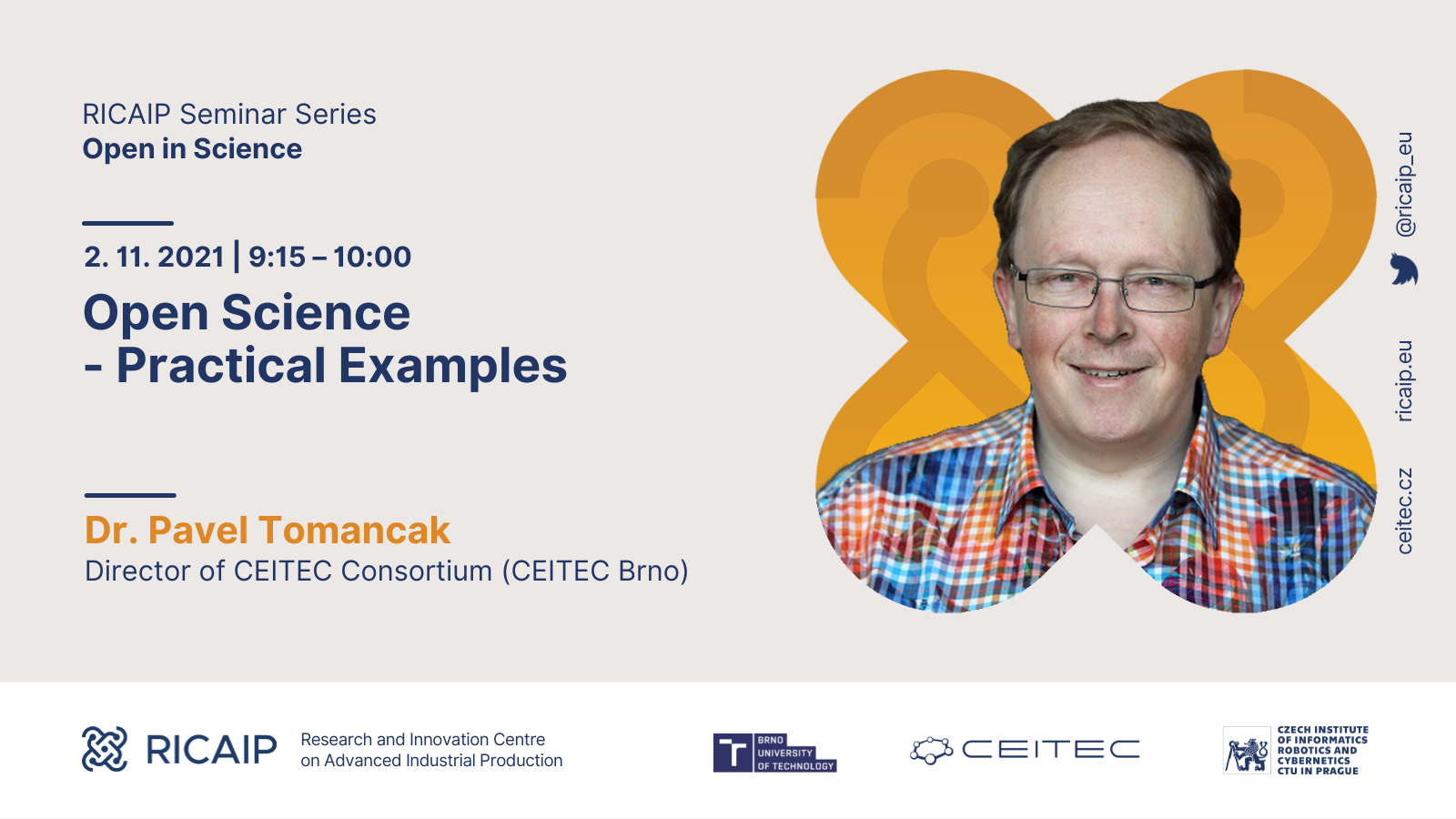
Pavel will describe how he practised open science in the areas of reagents, software, hardware and ideas and how it impacted his scientific career.
10:00 – 10:45
Margaret Gold
Coordinator of the Citizen Science Lab from Leiden University
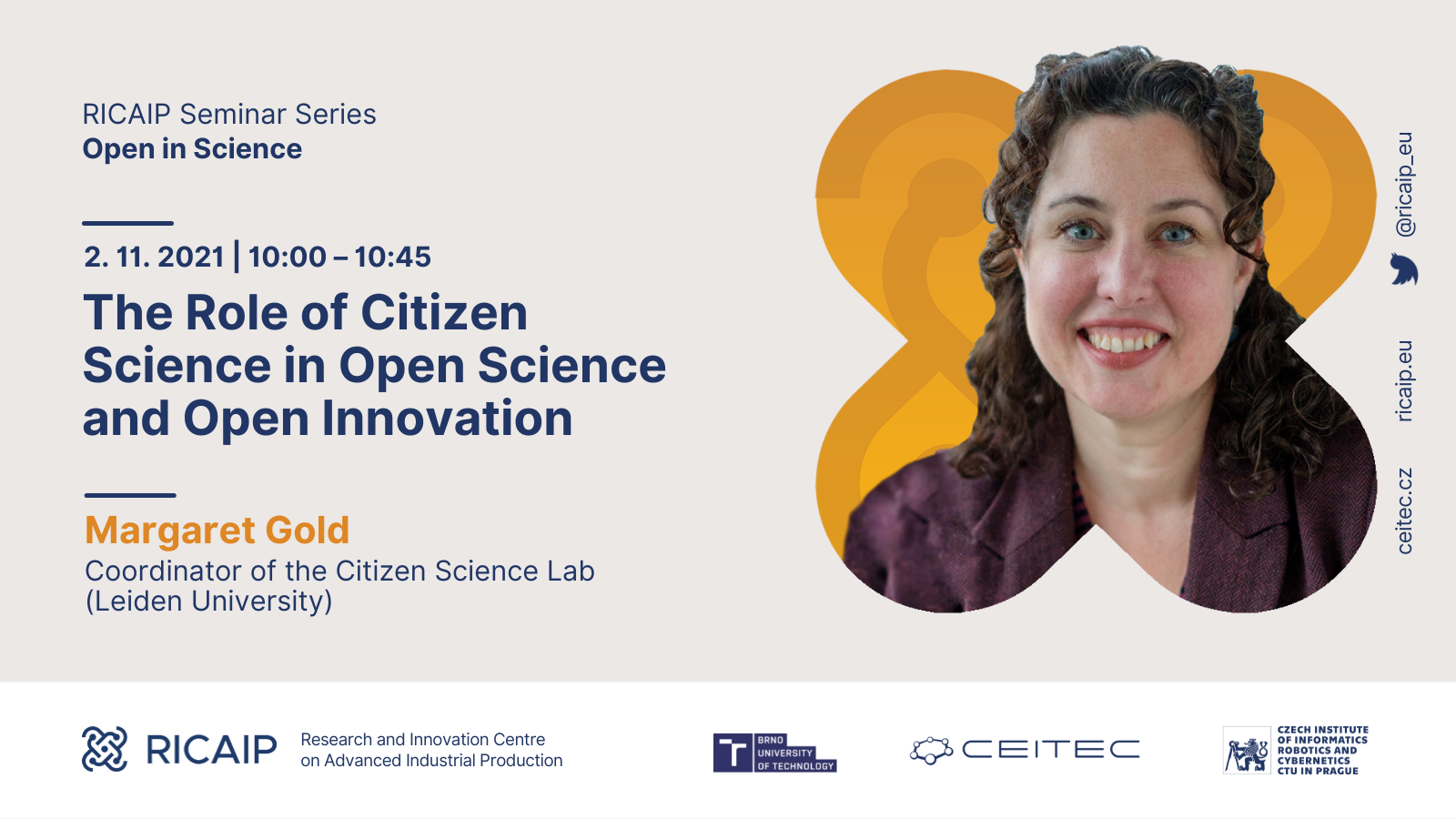
Margaret will give a brief introduction to the Citizen Science Lab at Leiden University. She will also talk about the role of Citizen Science in Open Science and ways of doing Citizen Science across the research cycle and innovation cycle, with examples. Don’t miss also her interactive session reflecting on your own research and innovation practices in break-out groups, followed by plenary discussion and space for your Q&A.
11:00 – 11:45
Dr. Luiza Bengtsson
Science Transfer and Outreach, “Lab Meets Teacher”, ORION Project Training WP Leader from Max Delbrück Center in Helmholtz Association Berlin
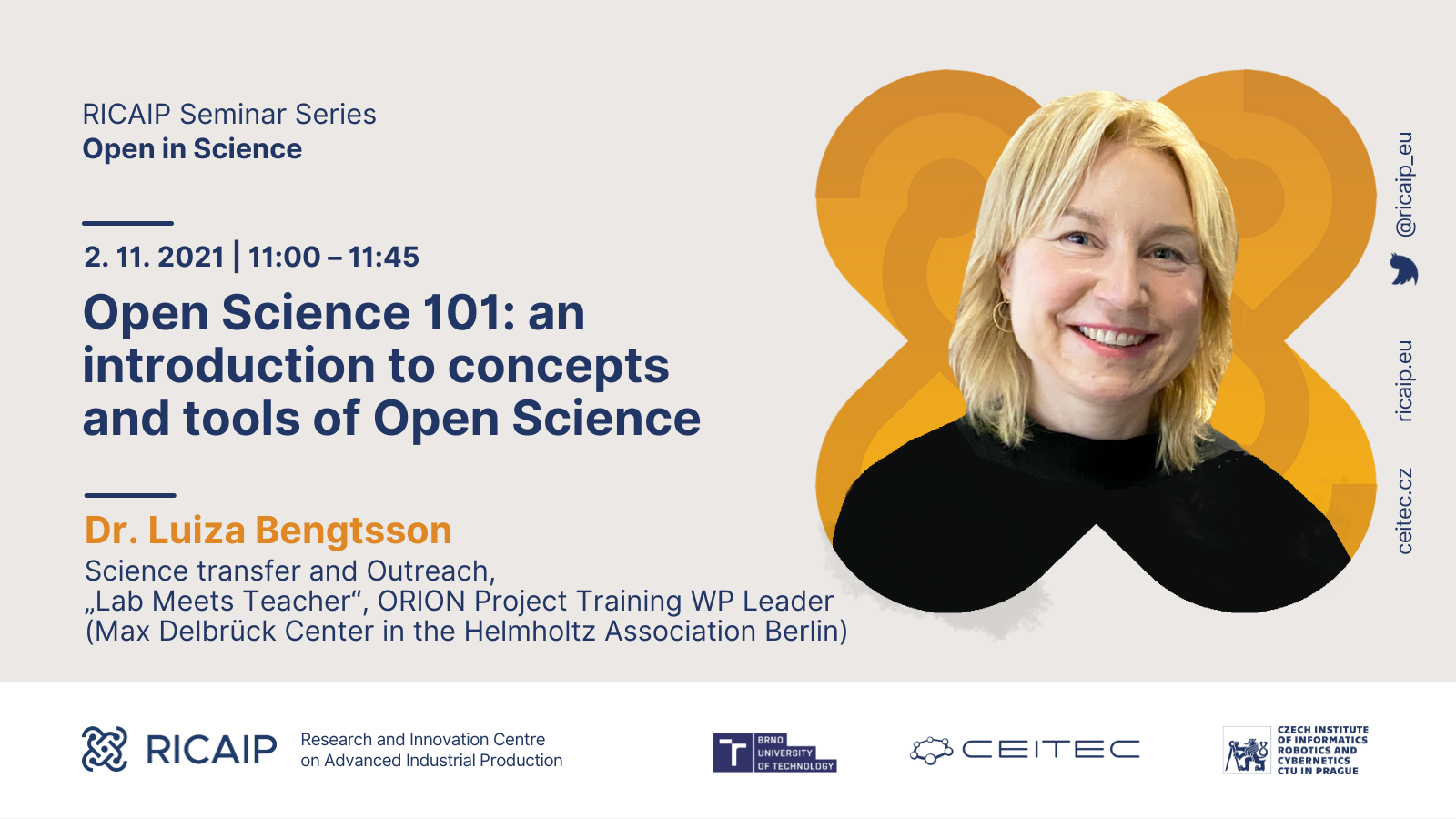
This workshop will establish what Open Science is and why it is needed. Luiza will particularly focus on the concepts of Public Engagement, giving you practical guidance and showcasing tools for incorporating it into your daily work.
11:45 – 12:00
Jan Skupa
Institutional Repository Manager from Central Library of Brno University of Technology
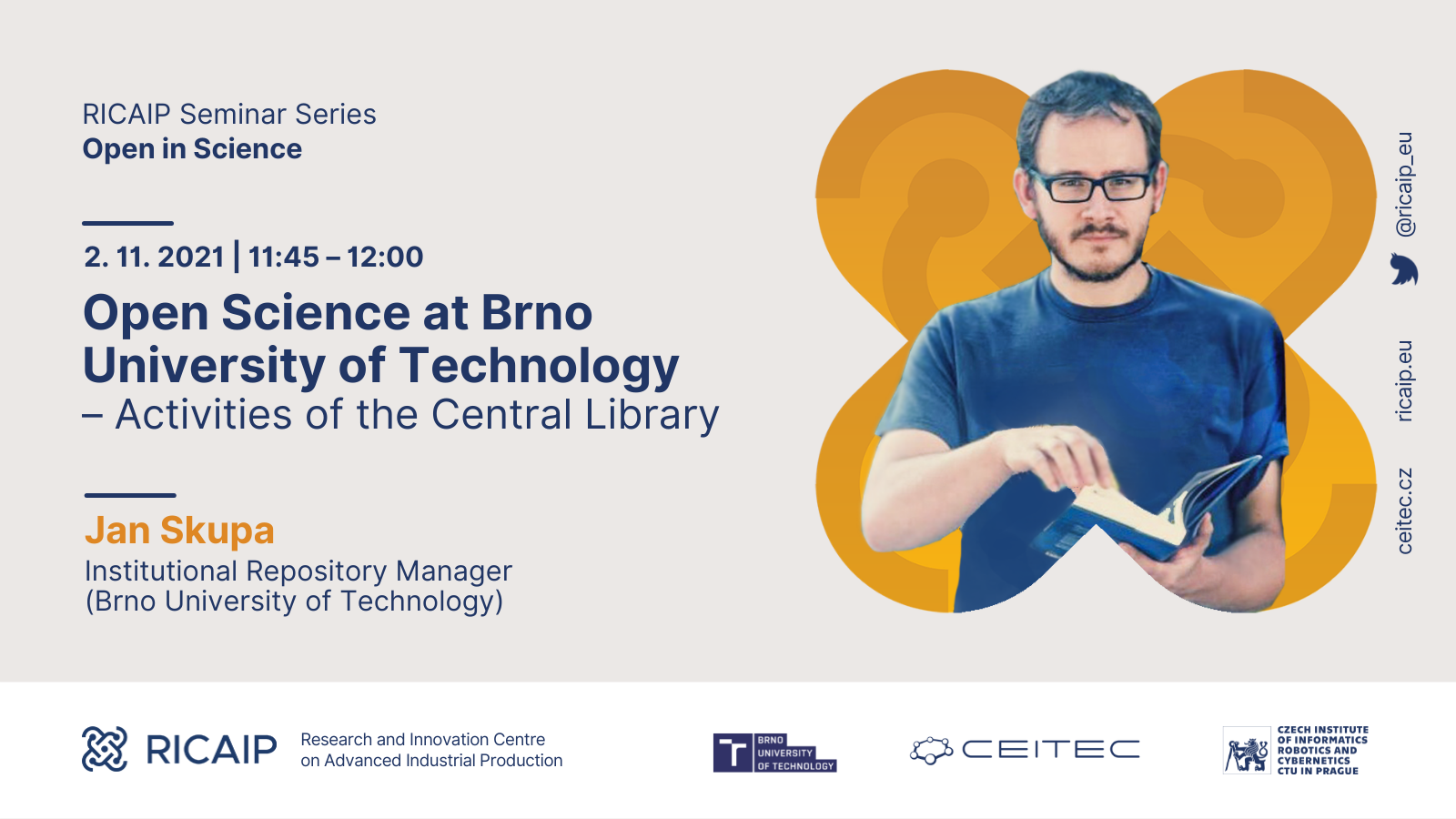
In his presentation, Jan will describe the activities of the Central Library that support the principles of Open Science at the Brno University of Technology. Attention will be focused mainly on the activities of the library in the field of Open Access – management of the institutional repository or the Open Access Fund. Other topics will be e.g. assigning DOIs for records in the repository, setting up the ORCID system to the IS BUT or organizing seminars on Open Access, Defending against predator publishers, RDM and DMP, etc.
| Cookie | Duration | Description |
|---|---|---|
| cookielawinfo-checkbox-analytics | 11 months | This cookie is set by GDPR Cookie Consent plugin. The cookie is used to store the user consent for the cookies in the category "Analytics". |
| cookielawinfo-checkbox-functional | 11 months | The cookie is set by GDPR cookie consent to record the user consent for the cookies in the category "Functional". |
| cookielawinfo-checkbox-necessary | 11 months | This cookie is set by GDPR Cookie Consent plugin. The cookies is used to store the user consent for the cookies in the category "Necessary". |
| cookielawinfo-checkbox-others | 11 months | This cookie is set by GDPR Cookie Consent plugin. The cookie is used to store the user consent for the cookies in the category "Other. |
| cookielawinfo-checkbox-performance | 11 months | This cookie is set by GDPR Cookie Consent plugin. The cookie is used to store the user consent for the cookies in the category "Performance". |
| viewed_cookie_policy | 11 months | The cookie is set by the GDPR Cookie Consent plugin and is used to store whether or not user has consented to the use of cookies. It does not store any personal data. |
